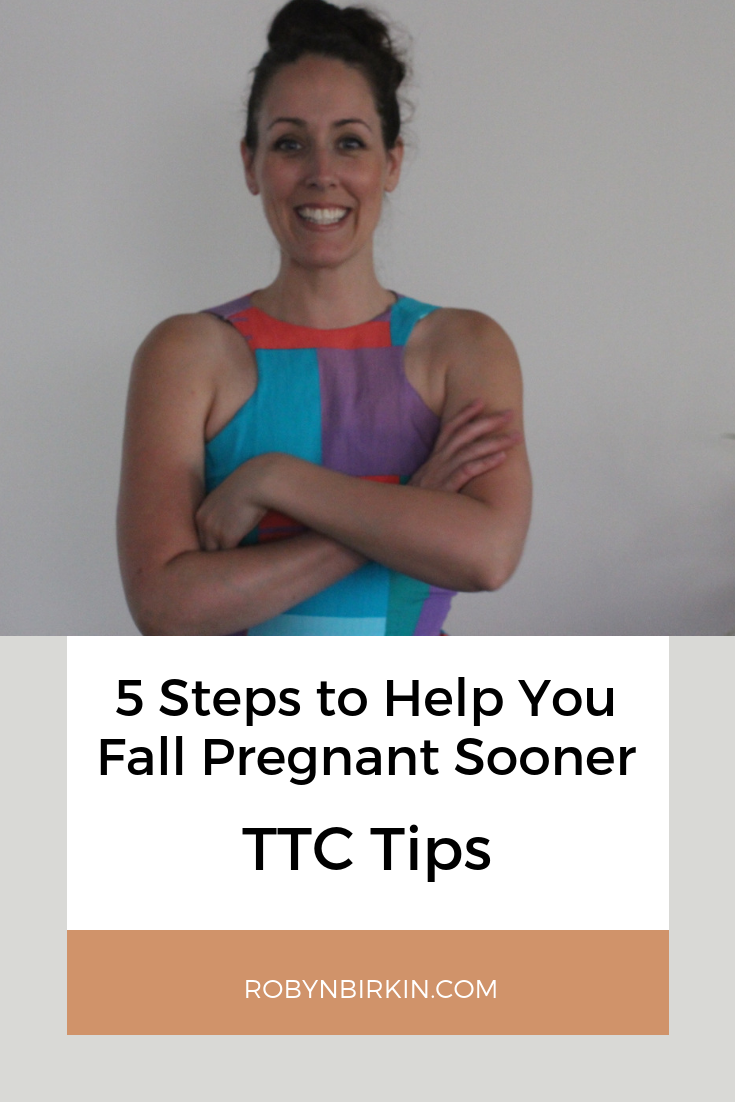When trying to conceive, especially in the internet age,we’re inundated with tips and advice. There’s no shortage of TTC tips and information, and so often all the advice conflicts with each other. It’s hard to know what the right thing is to do to conceive more quickly.
I have five tips here, all of which might seem quite simple but combined can be quite a powerful combo. We can get very easily bogged down in the really, really little things that we could be doing when we’re trying to conceive such as eating pineapple, but we’re not really nailing some of the basics on our journey. Let’s talk about nailing those before we move on to these little magic bullets.
get the timing right
Number one is get the timing right. Sex education class failed us because it wasn’t until really recently that I really started to do the work and understand how ovulation works. Understand exactly what is happening with our hormones and exactly what is happening when. And part of that education comes to a course that I did through one of the universities in the United States on reproduction. Some of it comes from just searching around. Some of it comes from amazing doctors of Chinese medicine, etc., who are out there.
But getting the timing right is one of the simplest ways to improve our infertility when we’re not at a fertility clinic. (If you are at a fertility clinic, wait for tips three to five).
What is the right timing?
So some of you might have heard some of the story of tracking your basal body temperature. Essentially tracking your basal body temperature means tracking your temperature when you first wake up in the morning before you get up in the morning. You want to check your temperature at the same time every single day to try and see a pattern. And the pattern that you’re looking for is a temperature rise after you ovulate. And when you have that temperature rise, that’s a sign that you’ve ovulated because it’s a sign that your hormones are changing throughout the course of the month but don’t then have sex, because when your basal body temperature increases, that means that ovulation has been and gone. You may or may not know that it takes sperm sometimes up to five days to reach your egg.
You want to really be using something like your basal body temperature. Maybe you have one of these Daisy or Ava bracelets and they’re great, but you need to be looking for patterns yourself. You need to be understanding, what’s happening with your body yourself, and you need to be trying to look for some consistencies so that you can also track for yourself and prepare in advance for when you might be ovulating, thinking that it could take the sperm up to five days to reach your egg. And what you want to do is, if you say, “Okay, on average I ovulate on Day 16 of my cycle, then I want to work back from there and have sex every other day within that range when I know that I’ll be close to ovulation.” And certainly it is definitely worthwhile to have sex when you’re ovulating.
Cervical mucus is one of the most reliable ways to check when you’re ovulating. And if you’re doing that, by all means have sex because sometimes it can get there really quickly. Don’t wait until you’ve had a temperature rise. Don’t wait until it’s too late and don’t just have sex on day 14 assuming that everybody just ovulates on day 14 because everybody’s different and everybody has different length cycles. People ovulate on different days. People’s bodies work differently. So, don’t assume. Make sure you get the timing right and start looking for patterns across several months.
8 Things You Need to Know About Ovulation
don’t wait too long
Don’t wait too long before getting help. I meet with so many people who have been trying for literally years before seeing a fertility specialist or an OB-GYN. There are so many things that could be really simple tweaks that could really impact your infertility. It could just be something really simple like your progesterone levels are off. Don’t wait. Get tested, try and start knocking some things off the park. But please don’t be one of these people who waits too long because if there is something not right and it could even be for your health in general.
If you have broken a leg, you would not sit at home for days and days on end. If you’re struggling to have a baby and it’s not happening, get help. It’s really easy to get tested.
prioritise your mental health
By this I mean try to take action to manage the stress that you might be under. You might already be under stress from your job. You might be in a stressful family situation, but trying to conceive just compounds that stress and managing your stress is not just important for your fertility, but it’s really important for you too. To survive this journey, you could be in this for the long haul. You might be on this journey for years and years.
For me, my journey feels like it happened relatively quickly. It was still three years between trying to conceive and having Chloe and then trying again. And then I had Olivia and that was like another two years after that. Babies add a whole other level of stress to everything as well.
We often think that as soon as we have the baby that everything magically disappears. It doesn’t, you’ll still be sleep deprived. You will still have the stress of then raising a newborn. All of these other things, nothing magically stops or goes away. The anxiety doesn’t necessarily stop and go away. We need to start learning how to manage that.
What can you do? What can you learn about yourself? What actions can you take or rituals can you employ on a daily basis to help you manage stress and anxiety?
We are so focused on our physical health in this society. Everybody’s looking at their diet and their exercise and what size they are and things like that, but nobody looks at our mental health. There is a mental health crisis occurring across the world. Depression is now rated as one of the biggest illness affecting teenagers these days.
What do you do on a day to day basis for your emotional health? On a physical level, we eat food, we drink water, we brush our teeth, we have a shower, we wash our hair. We do all of these things on autopilot for our emotional health. What actions can you take, despite feeling like you are at rock bottom emotionally, to really prioritize yourself on this journey?
Managing the stress of infertility
nail the diet
I cannot say enough that what you eat has such a big impact on your overall health. We’re all really individual in our needs, but you’ll be able to tell, if you stop and take a minute to listen to your body and to see how you feel when you eat foods, what your skin looks like, what your energy levels look like, because there are normal ranges for what these things should look like. And when our bodies are sending us symptoms, it’s like our body’s telling us that something’s out of whack and your diet is one of the easiest things that you can change that will have a big impact on your health, especially people who have conditions like PCOS.
So, really focus and you don’t have to do a massive overnight overhaul, but just try and take small steps and the small steps that you want to take are just navigating towards common sense. It’s not extreme diets like a Keto diet or anything like that, but really incorporating lots of water, lots of vegetables, cutting out processed food. When you look at food that has a stack of ingredients or doesn’t look like it did when it came out of the earth, maybe because it was made in a lab, you want to navigate towards different foods.
You want to navigate towards fresh foods that feel good, that don’t contain chemicals, that don’t contain 1,000,001 flavors. I think sometimes we can get so used to really salty, really fatty, really rich foods, but we’re feeding this monster that then wants to crave it more and more and more. That we want to flavor our foods with spices and things like that, but not overloading it with all of these false things.
Really take a minute, step back, navigate towards just real food, things that are grown in a garden, things that look the same as when they came out of the earth. It makes life so much easier as well when you do that. If there’s one thing that I want you to nail, it’s the diet.
5 tips to help you implement a fertility diet
be realistic
A lot of people who expect to fall pregnant on their first month trying, or on their first IVF cycle as well. Sometimes it takes time to do the basics, like get the timing right. Sometimes it takes time for the doctors to investigate and change medications and find medications that really work for you.
It all takes time. Be realistic. It may not happen for you on the first time. It may not happen for you right away, but that doesn’t mean that it won’t happen for you. It might just mean that it takes a little bit of time to get everything right.
So, that’s five things that you can do to help you nail trying to conceive: get the timing right, don’t wait too long before getting some help, prioritize your emotional health, nail the diet and be realistic about your expectations.
Listen here.

